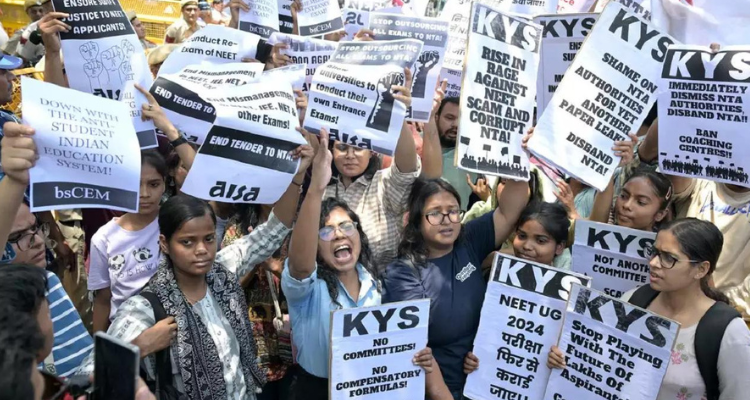
In the past 15 days, the terms NEET, Re NEET, and NTA have dominated headlines, with NEET (National Eligibility cum Entrance Test) and NTA (National Testing Agency) becoming subjects of legal scrutiny. It is crucial for our readers to grasp the full sequence of events surrounding these developments. This issue goes beyond a mere examination; it profoundly impacts the future of the nation, as NEET plays a pivotal role in shaping India’s future doctors.
Application Process
Initially scheduled from February 9th to March 9th, the application window for these exams unexpectedly reopened on April 8th, marking the first instance in NEET’s history where admission windows were reopened twice. Despite this, no action was taken at the time. However, a petition has since been filed in the Rajasthan High Court regarding this matter.
Paper Leak Allegations
These exams are conducted on May 5th, involving approximately 24 lakh students across more than four thousand centers nationwide. Controversies arose from the outset, with allegations of paper leaks surfacing. Education Minister Dharmendra Pradhan swiftly refuted these allegations.
However, thirteen individuals, including four test takers and their families, were detained in Bihar under suspicion of involvement in the NEET-UG exam paper leak. According to Patna police, approximately 20 participants received the NEET-UG question papers and answers a day before the exam date. NTA responded to the issue by stating that it is cooperating with Bihar police, providing all necessary documents for their investigation.
Additionally, an incident was reported from an examination center in Sawai Madhopur where Hindi-medium candidates received English papers and vice versa, although this was an isolated incident.
Grace Marks
The controversy further intensified with the announcement of the exam results. Initially slated for June 14th, the results were eventually released on June 4th, surprising many. Notably, only one or two students historically managed to score full marks in challenging exams like NEET. However, in 2024, 67 students achieved a perfect score of 720 out of 720. It’s worth noting that an incorrect answer deducts four marks, which theoretically makes it impossible for students to score 719 marks, while in the examination many students have achieved scores such as 719 or 718.
Amidst the uproar, NTA disclosed via a tweet that they had awarded grace marks to certain students, explaining the presence of scores like 718 or 719. NTA justified this action by citing time losses experienced by students during the exam, necessitating the awarding of these grace marks as compensation.
Conclusion
In conclusion, the recent controversies surrounding NEET and NTA underscore the significant challenges faced in conducting India’s premier medical entrance examination. Resolving these issues is crucial to ensuring equitable opportunities for all aspiring medical professionals nationwide.




